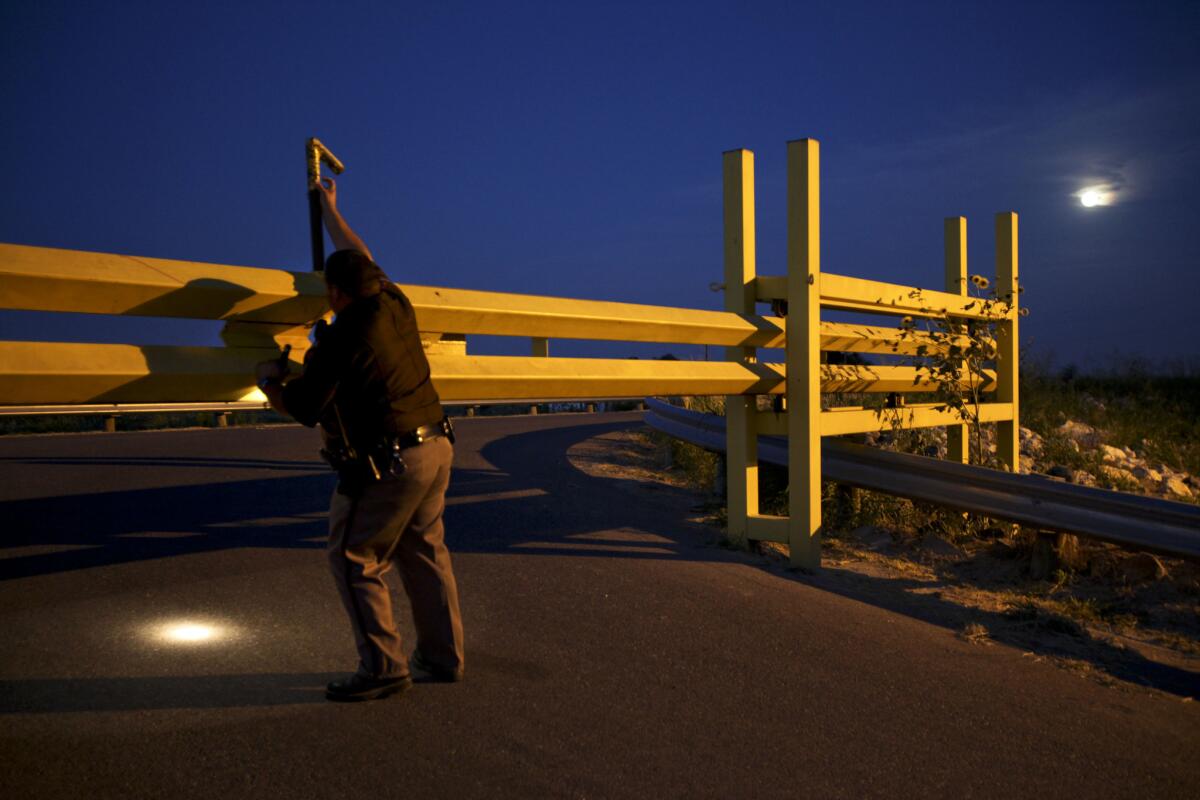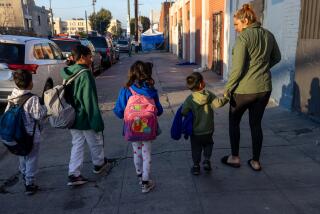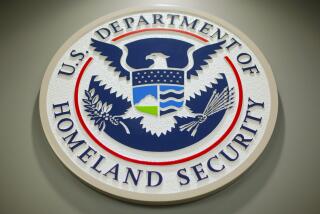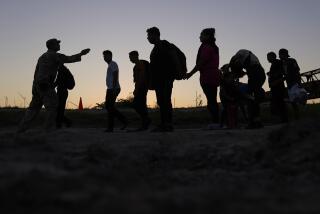Obama to seek $2 billion to stem surge of Central American immigrants

President Obama will send a letter to Congress on Monday requesting more than $2 billion to pay for tighter border enforcement and humanitarian assistance to respond to the swell of children from Central America illegally crossing the border without their parents, a White House official said Sunday.
Obama will also request that Congress change a law that requires unaccompanied children from non-contiguous countries be allowed to fight their deportations in immigration court before being sent out of the country. The change would make it easier for the U.S. to quickly return such children to their home countries, mirroring a similar law currently in place for children from Mexico.
A massive backlog in immigration courts has meant the children coming from Central American countries such as Guatemala, El Salvador and Honduras spend years inside the U.S. while their cases are being heard. During that time the majority of those children are released into the care of relatives in the U.S.
Obama will ask Congress to give the Homeland Security secretary the ability to speed the deportations of Central American children, the official said.
It is unusual for the president to make requests from Congress when lawmakers are not in session. Congress is on break until July 7. But the crisis on the border is mounting and White House officials decided that they could not wait to make the request until lawmakers return to Washington.
Unaccompanied minors and families — often women traveling with children — have been crossing the U.S.-Mexico border by the thousands, mainly in the Rio Grande Valley in southern Texas. An estimated 52,000 unaccompanied youths have been caught along the Southwest’s border with Mexico since October, almost double last year’s total.
Most of the migrants come from Central America, driven north by unstable conditions in their homelands and by a widespread rumor that the U.S. government is giving families and unaccompanied children permission to stay in the country indefinitely.
There is no special program granting such migrants residency, but in a strange way, the rumor has become somewhat true. Immigration officials were not prepared to handle the special needs of so many families or children and have responded by holding them in detention centers or releasing them to relatives or caretakers with the understanding they will report to immigration officials later.
Temporary shelters have been opened at military facilities, such as Lackland Air Force Base in San Antonio, to handle the influx. On Friday, officials announced that adults with children being held in overcrowded Border Patrol facilities in the Rio Grande Valley would be moved to California, housed in Border Patrol stations in the Imperial Valley and the San Diego area.
The children from Central America present a particular challenge to the government.
Under U.S. immigration law, Mexican or Canadian children who enter illegally and alone can be returned to their homelands immediately. Children from elsewhere, however, cannot be removed immediately and must first be taken into U.S. custody.
The Department of Homeland Security can detain children who aren’t from Mexico or Canada for a maximum of 72 hours.
The children then must be transferred to the Office of Refugee Resettlement, which places them in temporary shelters. That agency is required to “act in the best interest of the child,” which often means reuniting the child with a parent or relative living in the U.S. Others are placed in foster care.
Children have long crossed the border alone and illegally, but in the past most were Mexicans. According to U.S. authorities, a change occurred in fiscal year 2013 when more Central American children — nearly 21,000 from Honduras, Guatemala and El Salvador — entered the U.S. illegally. A little more than 17,000 originated from Mexico.
Through May of this federal fiscal year, 34,611 were from Central America and 11,577 from Mexico.
For more immigration news, follow @ByBrianBennett.
Follow @StevePadilla2 for national news.
More to Read
Sign up for Essential California
The most important California stories and recommendations in your inbox every morning.
You may occasionally receive promotional content from the Los Angeles Times.











